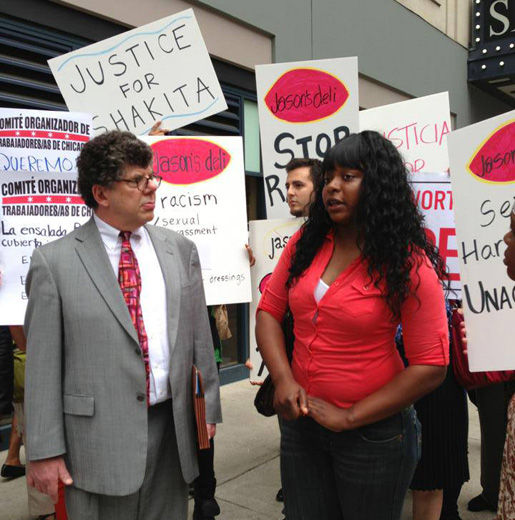
WASHINGTON – By a 5-4 margin, the U.S. Supreme Court ruled on June 24 that only supervisors with direct power over a worker’s future – such as the power to hire, fire and demote – can be sued for racial or sexual harassment on the job.
In a case involving Maetta Vance, a substitute server in the events department who sued her employer, Ball State University in Muncie, Ind., the justices reaffirmed that companies can be sued if they don’t take action to prevent racial or sexual harassment, and that supervisors, as companies’ representatives, can also be sued.
The question is who’s a supervisor, and the court majority said it’s only those with direct power over the workers’ future. Those workers who – as part of their larger jobs – can give orders to other workers about run-of-the-mill daily tasks, aren’t supervisors, the justices said. And they can’t be sued for harassment.
“The concept of a supervisor adopted today is one that can be readily applied,” Justice Samuel Alito wrote for the court majority, all GOP-nominated men. “An alleged harasser’s supervisor status will often be capable of being discerned before or soon after litigation commences and is likely to be resolved as a matter of law before trial.
“An employer may be vicariously liable for an employee’s unlawful harassment only when the employer has empowered that employee to take tangible employment actions against the victim, i.e., to effect a ‘significant change in employment status, such as hiring, firing, failing to promote, reassignment with significantly different responsibilities, or a decision causing a significant change in benefits.’
“We reject the nebulous definition of a ‘supervisor’ ” that Vance used, citing the federal Equal Employment Opportunities Commission. Several appeals courts agree with the EEOC, and with Vance, but her “reliance on colloquial uses of the term ‘supervisor’ is misplaced, and her contention that our cases require the EEOC’s abstract definition is simply wrong.”
Workers “who can assign daily tasks” to other workers, but who are not supervisors, do not get off completely scot-free, Alito warned. “In such cases, a victim can prevail simply by showing the employer was negligent in permitting the harassment to occur, and the jury should be instructed that the nature and degree of authority wielded by the harasser is an important factor in determining negligence,” he said.
The court majority recognized, in a footnote, that the National Labor Relations Act (NLRA), which governs worker-management relations, has a different definition of supervisor. Vance cited that as one of several definitions of supervisor the court should use in determining who can be sued for harassing her. The justices said “no.”
“To be sure, the NLRA may in some instances define ‘supervisor’ more broadly than we define the term in this case. But those differences reflect the NLRA’s unique purpose, which is to preserve the balance of power between labor and management. That purpose is inapposite” – not pertinent – “in the context of Title VII” of the Civil Rights Act, “which focuses on eradicating discrimination,” the justices said.
“An employee may have a sufficient degree of authority over subordinates such that Congress has decided the employee should not participate with lower level employees in the same collective-bargaining unit, because, for example, a higher level employee will pursue his own interests at the expense of lower level employees’ interests. But that authority is not necessarily sufficient to merit heightened liability for the purposes of Title VII. The NLRA’s definition of supervisor therefore is not controlling in this context.”
The dissenters, led by Justice Ruth Bader Ginsburg, said the five-man majority seems to ignore what actually occurs in workplaces in today’s economy.
“Addressing who qualifies as a supervisor, the EEOC answered: (1) An individual authorized ‘to undertake or recommend tangible employment decisions affecting the employee,’ including ‘hiring, firing, promoting, demoting, and reassigning the employee’ or (2) An individual authorized “to direct the employee’s daily work activities.’
“The court today strikes from the supervisory category employees who control the day-to-day schedules and assignments of others. The limitation the court decrees…ignores the conditions under which members of the work force labor, and disserves the objective of Title VII to prevent discrimination from infecting the nation’s workplaces,” the dissenters added.
Photo: On June 24, Shakita Moore announced filing a complaint with the EEOC for the racism, sexual harassment and retaliation she experienced when raising concerns with management at the deli where she works. Fight for 15 Facebook page.












Comments